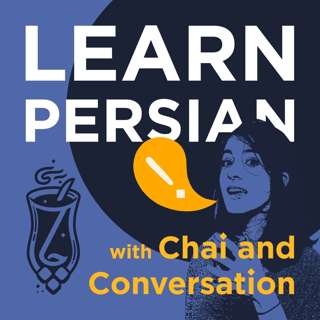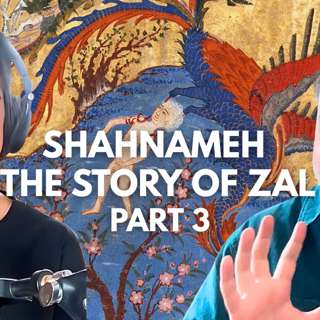
Speak Lesson 5 | How to Talk About Your Family, and Introduce Their Names
In this Persian (Farsi) lesson, we learn the words for members of your immediate family, and learn how to introduce your family members to other people. We finish off the lesson by learning how to introduce the names of your family members to others. We begin by learning the vocabulary words for several key members of the family in Persian. As you know, family is very important in the Persian culture, so these vocabulary words wll be more useful to you than you could imagine. The words learned in this part of the lesson include:brothersistermotherfatherdaughtersonhusbandwife In the Persian culture, family is extremely important, and there are many many more words for specific family members than there are in English. For this reason, we'll leave the vocabulary words (yes, there are multiple multiple words) for cousin, aunt and uncle to a different lesson. We also learn how to talk about a direct relative of yours by saying phrases such as:my mothermy sonmy daughterThis is my ____________We finish off the lesson by learning how to introduce the names of family members.
25 Mars 201116min

Speak Lesson 4 | How to Say Where You Live, and Answer Simple Questions
In this Persian (Farsi) lesson, we review all past lesson materials. You'll have a chance to test out your comprehension of the vocabulary learned, and see if you're able to use the words and phrases in the correct context.We also learn the words needed to answer simple questions in the Persian language- essential when having any casual conversation! These words are:Yes (balé)Yeah- more informal (āré)No (na)Then we learn how to say where we live (and if it’s different than where we are from), and how to answer some simple questions. The phrases in this section include:I am from ___________I am not from _________I live in ______________Where do you live?I am from _______________ but now I live in ______________As always, we'll go over several potential conversations you could have using just this vocabulary.In addition, we learn that in the Persian language, it's not necessary to state the subject in the sentence. The subject is understood based on how you conjugate the verb in the sentence. For instance, instead of saying 'man az Iran hastam' (meaning I am from Iran), you could simply say 'az Iran hastam'. The listener can tell from the conjugation of the word 'hastam' that the sentence is referring to the first person singular, so you can drop man (meaning I).
7 Feb 201117min

Speak Lesson 3 | How to Introduce Where You are From, and Introducing the Different forms of You
In the Persian language, there are two different ways of saying 'you'- a formal version (shomā), and an informal version (tō). In this lesson, we learn both forms, and learn when it's appropriate to use them. For instance, when you're talking to a close friend or a family member close to your age, you would use the informal you, tō. When speaking with someone older than you, or someone you should show respect for, you use the formal version, shomā. Iranian culture places a high value on respect, so when in doubt, err on the side of formality. In the podcast, we talk more about this so that you are confident with your choice of which to use. In addition to the different forms of you, we go over some questions you can ask using the formal or information versions of you. These include:And you?What is your name?Another wonderful topic of conversation and good way to get to know others is by asking them where they're from. This is a great topic of conversation no matter where in the world you are. We'll learn the formal and informal way of asking. The phrases learned in this section include:Where are you from? (informal)Where are you from? (formal)I am from ________We also learn a list of countries and how to say them in the Persian language. The countries learned in this lesson include:Iran (pronounced ee-rān)the United StatesSpainEnglandGermanyFranceMexicoWe also include several other countries in the bonus vocabulary.
21 Jan 201111min

Speak Lesson 2 | How to Greet People at Different Times of Day, Say Goodbye, and Introduce Yourself
In this lesson, we build on the last lesson, and learn how to greet people during different times of the day, several forms of the word goodbye, and how to introduce yourself in the Persian language.
13 Jan 201114min

Speak Lesson 1 | How to Greet People and Ask How They're Doing
Salām, and welcome to the first-ever Persian (Farsi) language lesson of Chai and Conversation! In this lesson, we learn one of the most important things in any language – how to greet people and ask them how they are doing- in Persian! We also learn a few simple ways to reply when asked how we're doing. In addition, there's a short introduction to the teacher, Leyla Shams, and the student, Matt Bourneuf. If you're new here, you can find out more about our comprehensive language learning program here.
28 Dec 201015min






















